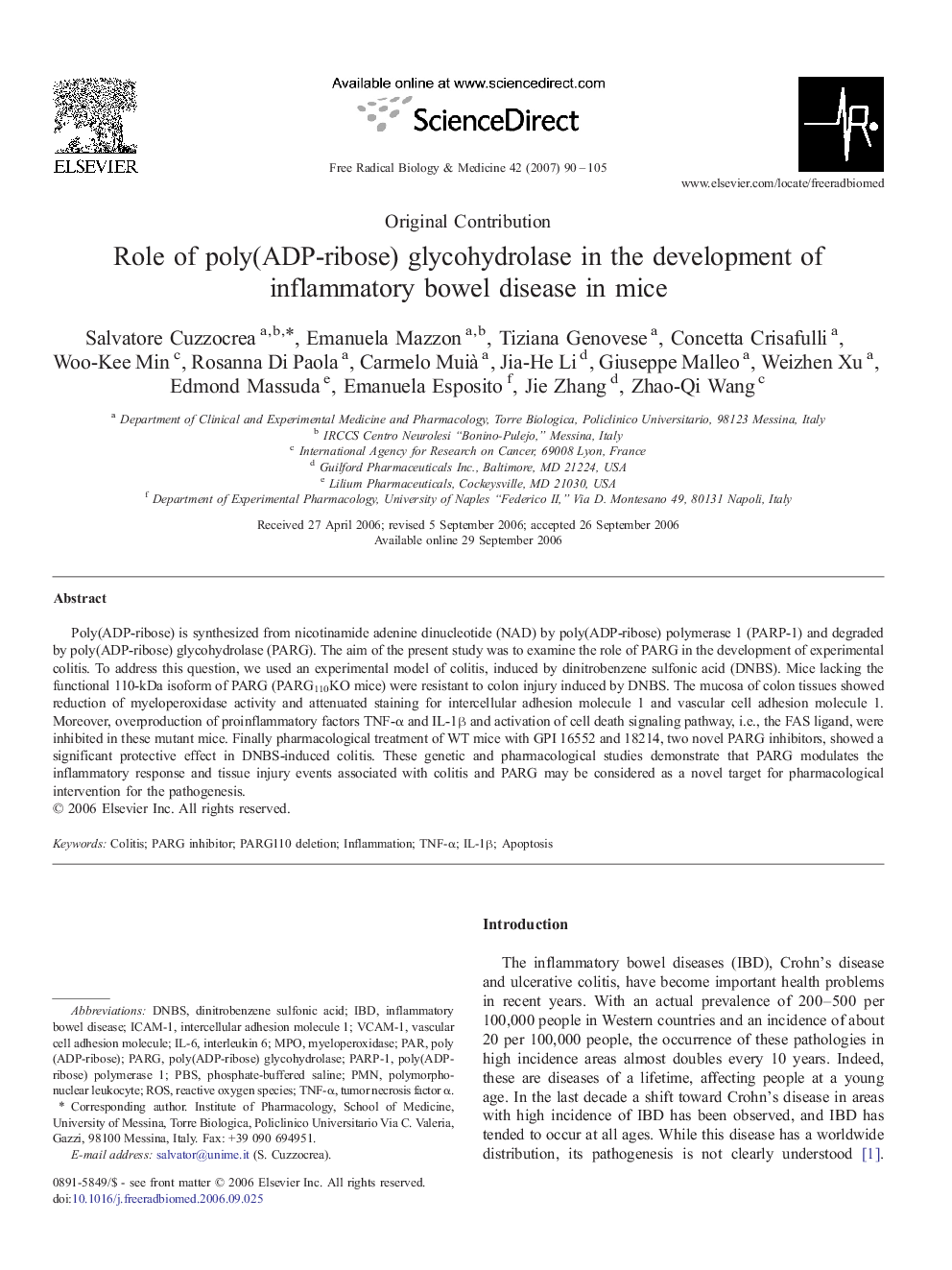| Article ID | Journal | Published Year | Pages | File Type |
|---|---|---|---|---|
| 1910922 | Free Radical Biology and Medicine | 2007 | 16 Pages |
Poly(ADP-ribose) is synthesized from nicotinamide adenine dinucleotide (NAD) by poly(ADP-ribose) polymerase 1 (PARP-1) and degraded by poly(ADP-ribose) glycohydrolase (PARG). The aim of the present study was to examine the role of PARG in the development of experimental colitis. To address this question, we used an experimental model of colitis, induced by dinitrobenzene sulfonic acid (DNBS). Mice lacking the functional 110-kDa isoform of PARG (PARG110KO mice) were resistant to colon injury induced by DNBS. The mucosa of colon tissues showed reduction of myeloperoxidase activity and attenuated staining for intercellular adhesion molecule 1 and vascular cell adhesion molecule 1. Moreover, overproduction of proinflammatory factors TNF-α and IL-1β and activation of cell death signaling pathway, i.e., the FAS ligand, were inhibited in these mutant mice. Finally pharmacological treatment of WT mice with GPI 16552 and 18214, two novel PARG inhibitors, showed a significant protective effect in DNBS-induced colitis. These genetic and pharmacological studies demonstrate that PARG modulates the inflammatory response and tissue injury events associated with colitis and PARG may be considered as a novel target for pharmacological intervention for the pathogenesis.
